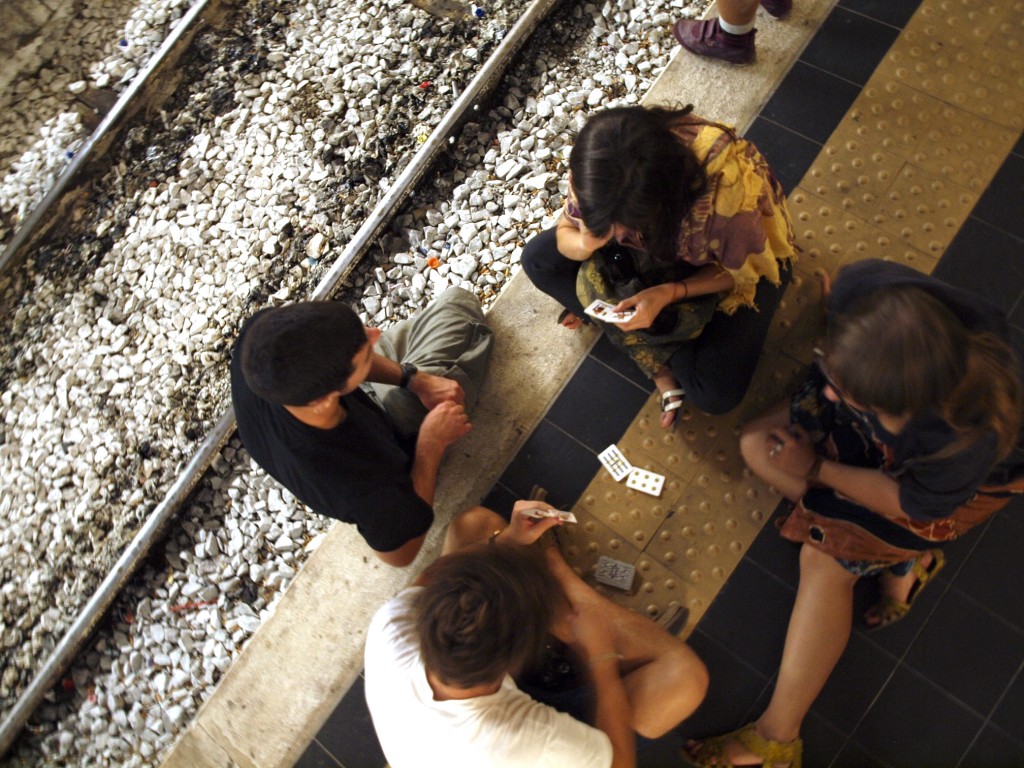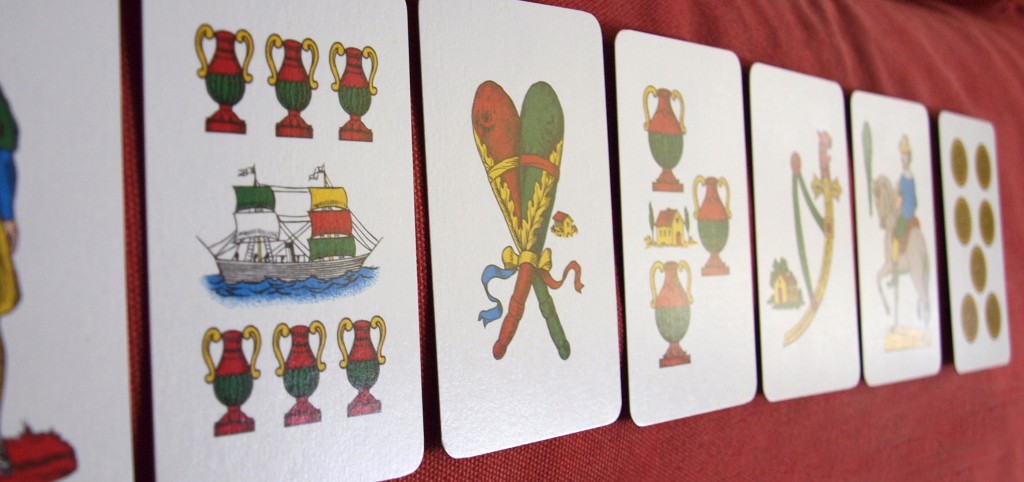Our last field trip brought us all the way to Sicily. Rome and Sicily are more than 500 kilometers apart, however, most of our time getting to and from was spent asleep. We needed rest from long days of walking tours, beach afternoons and once, heavy rainfalls. We needed to compensate for hours of sleep that we had instead used to explore the cities’ night scenarios or enjoying our hotel’s roof terrace overlooking roman temples.
We boarded a bus that would take us first to Herculaneum and then ultimately to Napoli at 7:00 in the morning in Largo Argentina. In Napoli, we transitioned onto a night train to Palermo. We were divided into sleeping rooms of 4. Overnight, we had traveled to the southern tip of Italy. From the mainland, our train needed to cross a strait of about 7 km to reach the island of Sicilia. There is no bridge in place and no floating tracks- our train’s cars were separated and then engulfed within an enormous ferry.
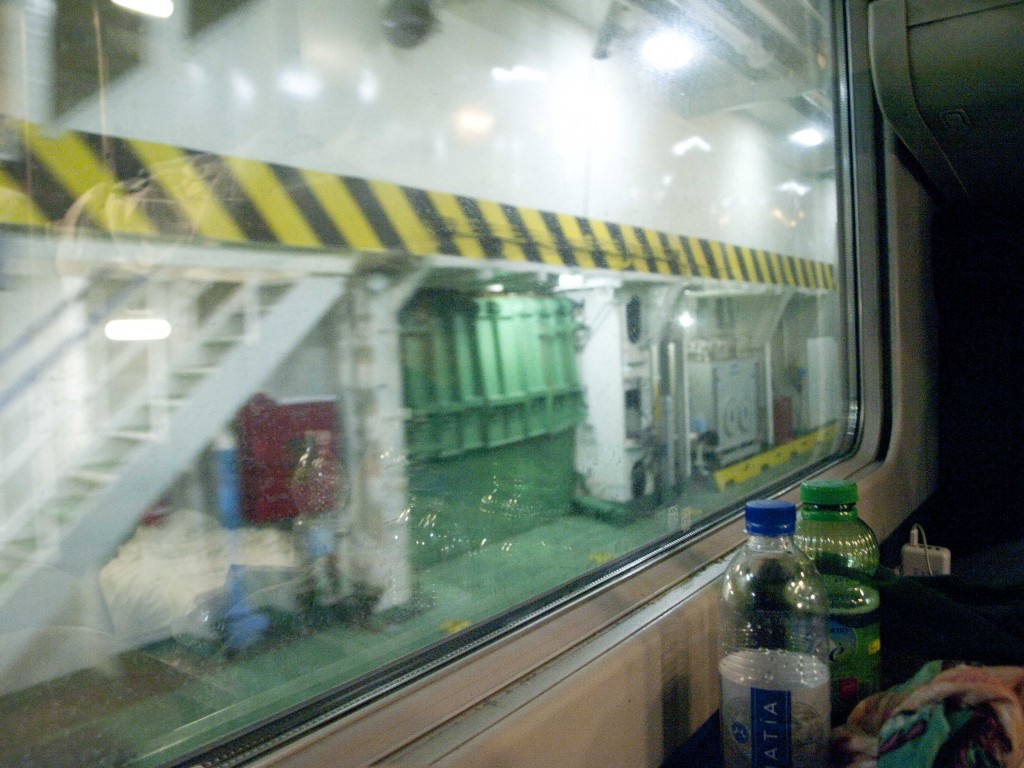
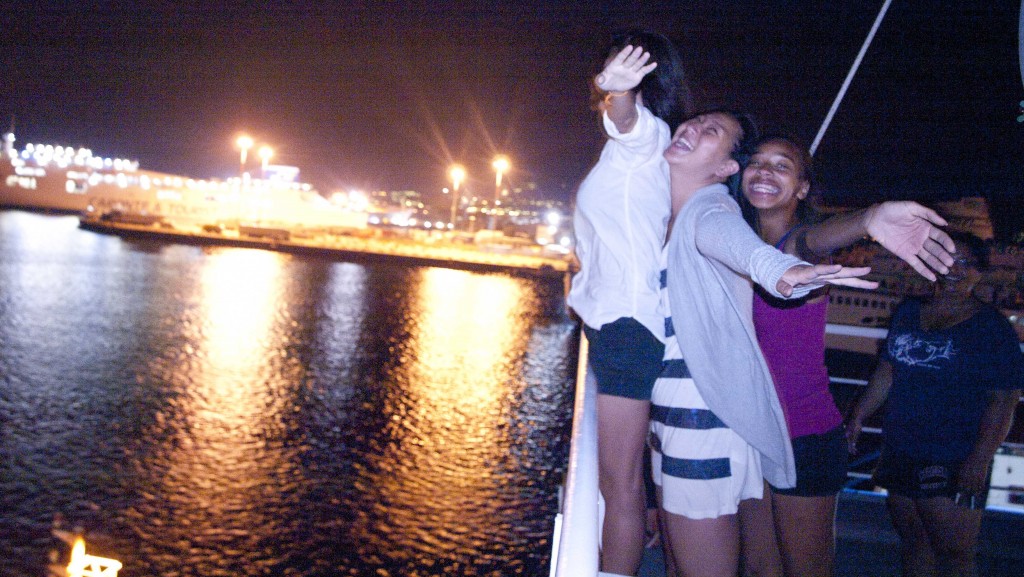
We were able to get out of the train car and tour the boat’s deck. Although the strait is very narrow, the process of loading and unloading and the slow pace of the ferry took almost two hours. On the boat, we befriended the captain and crew who welcomed us into the helm. It was a Cornell architecture student, Lauren Gluck, who manned the steering wheel of the ferry as we left Sicilia.
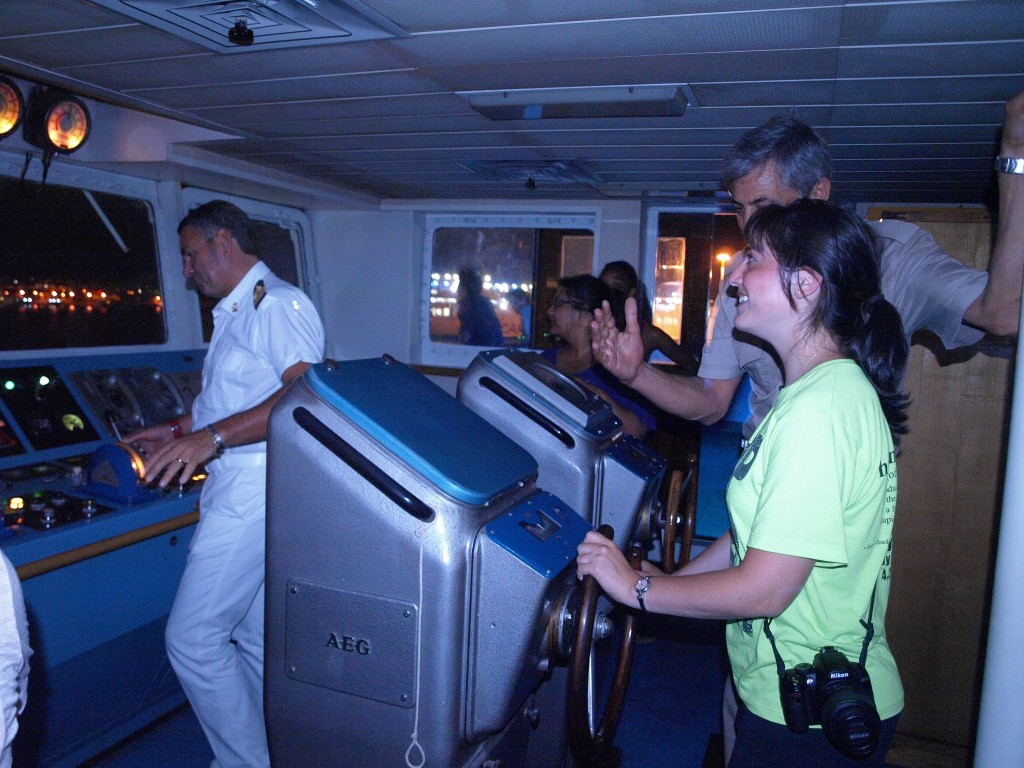
Although our trip was packed with events and hurrying from one site to another, we had spans of down time waiting for trains, buses and rendezvous. During these times, we shared our cultures through card games. We learnt how to play Durak(translates to ‘fool’ in English), a Russian card game, thanks to one of our students who is Russian. We discovered the traditional set of Italian cards that consist of 40 cards and are very colorful and more graphic that the poker cards that most of us are used to. These cards can be used for the Italian regional game of Scopa. A cashier explained the rules to me as I was purchasing a deck. She was more than eager to teach the game (basically involves taking tricks) and she soon opened a new deck and we began to play on the counter with her two friends that worked in the store as well. We later played Scopa on the platform of the station as we waited for our train back home.
